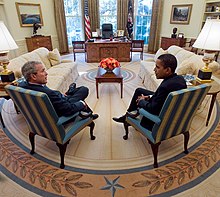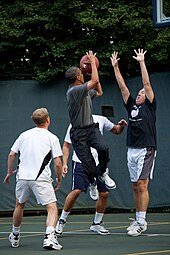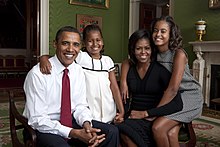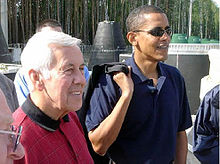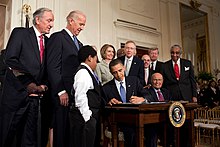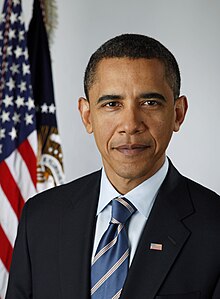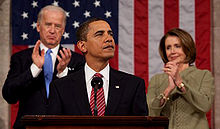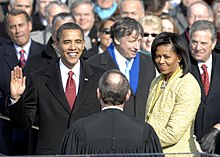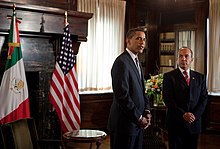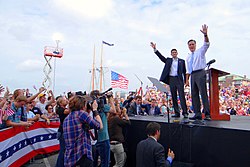Obama is a monumental fraud who talks a good story
'...I'm hungry, mum, can I have some hope please?....
.. why I say Obama is far more dangerous to freedom than Bush..
The CAP will fit and Obama will wear it...
Obama is a monumental fraud who talks a good story '
...David Icke..ex BBC Journalist and TV Presenter
Obama is a monumental fraud who talks a good story, but lives a very different one. He won his first political office as a state senator in Chicago in 1996, not through the power of politics, but by coldly abusing
the electoral process. Instead of running against his opponents and letting the people decide, he had his cronies challenge hundreds of names on the nomination papers of his democratic primary rivals until they were forced off the ballot by technicalities. Obama then ran unopposed. One of them, Gha-is Askia, says, that Obama's behaviour belied his image as a champion of the little guy and crusader for voter rights:
'...Why say you're for new tomorrow, then do old-style Chicago politics to remove legitimate candidates? Obama talks about honour and democracy, but what honour is there in getting rid of every other candidate so you can run scot-free? Why not let the people decide?....'
Barack Obama Net Worth
Net Worth:  $11.8 Million As of 2012 Source of Wealth: Books, Politics (Annual Salary: $400,000)
$11.8 Million As of 2012 Source of Wealth: Books, Politics (Annual Salary: $400,000)
Barack Hussein Obama II Age: 51 Years Old
Barack Hussein Obama II Date of Birth: August 4, 1961
Barack Hussein Obama II Birth Place: Honolulu, Hawaii, U.S.
Barack Hussein Obama II Nationality: United States
Barack Hussein Obama II Ethnicity: African, Irish, English
Barack Hussein Obama II Height: 6' 1" (1.85 m)
Barack Hussein Obama II Weight: 176 lbs (80 kg)
Barack Hussein Obama II Full Name: Barack Hussein Obama II
Barack Hussein Obama II Marital Status: Married (Michelle Obama)
Barack Hussein Obama II Children: 2 (Malia, Sasha)
Barack Hussein Obama II Education: J.D./Harvard Law School,B.A./Columbia University
Barack Hussein Obama II Occupation: Politician (Current U.S. President ), Author
Annual Salary: $400,000

Barack Obama and family
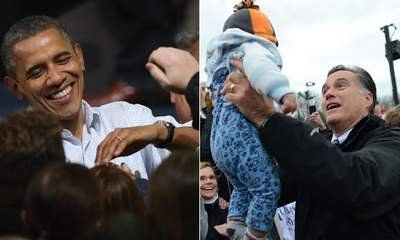 Barack Obama with supporters and left...Mitt Romney right with a baby
Barack Obama with supporters and left...Mitt Romney right with a baby
 Ohio Election Rally 2012 USA presidential elections
Ohio Election Rally 2012 USA presidential elections
The 44th president of the United States, author and the most popular person in the world, Barack Hussein Obama II, has a net worth between $2,801,012 and $11,830,000, according to analysis of his 2012 financial disclosure forms. Excluding the $1.4 million in Nobel Prize money he donated to charity and his primary home. His historic run for the presidency helped him sell millions of copies of his two books, Dreams of My Father and The Audacity of Hope, during the campaign. He sold another 100,000 copies the week following his election. In 2009, the president earned an advance for an abridged version of Dreams for young adults; the deal made him the first sitting president in recent memory to receive a book advance while in office. The real money will be made years from now: Obama could certainly earn tens of millions of dollars a year giving speeches full time. President Barack Obama’s base salary is $400,000 a year. He also has access to a $150,000 expense account as well as a $100,000 tax free travel account and $20,000 entertainment budget. Obama served three terms in the Illinois Senate, and is the first African American President of the United States. Obama was born August 4, 1961 in Honolulu, Hawaii, and is a graduate of Columbia University and Harvard Law School.
Here is one Brzezinski (Obama's and all previous presidents going back to Carter's Security advisor) quote you might recognise and it was made before Obama ran for president:
'.... Need social reassessment...can be encouraged by deliberate civic education that stresses the notion of service to a higher cause than oneself. As some have occasionally urged, a major step in that direction would be the adoption of an obligatory period of national service for every young adult, perhaps involving a variety of congressionally approved domestic or foreign good works...'
Now where have I heard that before?
As an Illuminati operative, Brzezinski's aim is to create a world government, central bank, current and army - a global dictatorship - underpinned by a micro-chipped population connected to a global computer'satellite system. He wrote a book in 1970, Between Two Ages: America's Role in the Technetronic Era, in which he described the global society that he and the Illuminati seek to impose:
'..The technetronic era involves the gradual appearance of a more controlled society. Such society would be dominated by an elite, unrestrained by traditional value. Soon it will be possible to assert almost continuous surveillance over every citizen and maintain up-to-date complete files containing even the most personal information about the citizen. There files will be subject to instantaneous retrieval by the authorities...'
He also said in the same book nearly 40 year ago:
'..Today we are witnessing the emergence of transnational elites...(Whose) ties cut across national boundaries... It is likely that before long the social elites of most of the more advanced countries will be highly internationalist or globalist in spirit and outlook.... The nation-state is gradually yielding its sovereignty ...Further progress will require greater American sacrifices. More intensive efforts to shape a new world monetary structure will have to be undertaken, with soeme consequent risk to the present relatively favourable American position....'
The world's leading consumer advocate promoting healthier non-GMO choices.
Posted: November 30, 2008
Biotech "Yes Men" on Obama's team threaten to expand the use of dangerous genetically modified (GM) foods in our diets. Instead of giving us change and hope, they may prolong the hypnotic "group think" that has been institutionalized over three previous administrations—where critical analysis was abandoned in favor of irrational devotion to this risky new technology.
Clinton's agriculture secretary
Dan Glickman saw it first hand:
"It was almost immoral to say that [biotechnology] wasn't good, because it was going to solve the problems of the human race and feed the hungry and clothe the naked. . . . If you're against it, you're Luddites, you're stupid. That, frankly, was the side our government was on. . . . You felt like you were almost an alien, disloyal, by trying to present an open-minded view"
When Glickman dared to question the lax regulations on GM food,
he said he "got slapped around a little bit by not only the industry, but also some of the people even in the administration."
By shutting open-minds and slapping dissent, deceptive myths about genetically modified organisms (GMOs) persist.
- The industry boasts that GMOs reduce herbicide use; USDA data show that the opposite is true.
- We hear that GMOs increase yield and farmer profit; but USDA and independent studies show an average reduction in yield and no improved bottom line for farmers.
- George H. W. Bush fast-tracked GMOs to increase US exports; now the government spends an additional $3-$5 billion per year to prop up prices of the GM crops no one wants.
- Advocates continue to repeat that GMOs are needed to feed the world; now the prestigiousInternational Assessment of Agricultural Knowledge, Science and Technology for Development has joined a long list of experts who flatly reject GMOs as the answer to hunger.
Food Safety Lies
Of all the myths about GMOs, the most dangerous is that they are safe. This formed the hollow basis of the FDA's 1992 GMO policy, which stated:
"The agency is not aware of any information showing that foods derived by these new methods differ from other foods in any meaningful or uniform way."
The sentence is complete fiction. At the time it was written, there was overwhelming consensus among the FDA's own scientists that GM foods were substantially different, and could create unpredictable, unsafe, and hard-to-detect allergens, toxins, diseases, and nutritional problems. They had urged the political appointees in charge to require long-term safety studies, including human studies, to protect the public.
Their
concerns stayed hidden until 1999, when 44,000 pages of internal FDA memos and reports were made public due to a lawsuit. According to public interest attorney Steven Druker, the documents showed how their warnings and "references to the unintended negative effects" of genetic engineering "were progressively deleted from drafts of the policy statement," in spite of scientists' protests.
"What has happened to the scientific elements of this document?" wrote FDA microbiologist Louis Pribyl, after reviewing the latest rewrite of the policy. "It will look like and probably be just a political document. . . . It reads very pro-industry, especially in the area of unintended effects."
Who flooded the market with dangerous GMOs
Thanks to the FDA's "promote biotech" policy, perilously few safety studies and investigations have been conducted on GMOs. Those that have, including
two government studies from Austria and Italy published just last month, demonstrate that the concerns by FDA scientists should have been heeded. GMOs have been linked to toxic and allergic reactions in humans, sick, sterile, and dead livestock, and damage to virtually every organ studied in lab animals. GMOs are unsafe.
At the highest level, the responsibility for this disregard of science and consumer safety lies with the first Bush White House, which had ordered the FDA to promote the biotechnology industry and get GM foods on the market quickly. To accomplish this White House directive, the FDA created a position for Michael Taylor. As the FDA's new Deputy Commissioner of Policy, he oversaw the creation of GMO policy.
Taylor was formerly the outside attorney for the biotech giant Monsanto, and later became their vice president. He had also been the counsel for the International Food Biotechnology Council (IFBC), for whom he drafted a model of government policy designed to rush GMOs onto the market with no significant regulations. The final FDA policy that he oversaw, which did not require any safety tests or labeling, closely resembled the model he had drafted for the IFBC.
Michael Taylor is on the Obama transition team.
Genetically engineered bovine growth hormone and unhealthy milk
Taylor was also in charge when the FDA approved Monsanto's genetically engineered bovine growth hormone (rbGH or rbST). Dairy products from treated cows contain more pus, more antibiotics, more growth hormone, and more IGF-1—a powerful hormone linked to cancer and increased incidence of fraternal twins (see
www.YourMilkonDrugs.com.) The growth hormone is banned in most industrialized nations, including Canada, the EU, Japan, Australia, and New Zealand. But under Michael Taylor, it was approved in the US, without labeling.
As more and more consumers here learn about the health risks of the drug, they shift their purchases to brands that voluntarily label their products as not using rbGH. Consumer rejection of rbGH hit a tipping point a couple of years ago, and since then it has been kicked out of milk from Wal-Mart, Starbucks, Kroger, Subway, and at least 40 of the top 100 dairies. In 2007, Monsanto desperately tried to reverse the trend by asking the FDA and FTC to make it illegal for dairies to label their products as free from rbGH. Both agencies flatly refused the company's request.
But Monsanto turned to an ally, Dennis Wolff, the Pennsylvania Secretary of Agriculture. Wolff used his position to single-handedly declare rbGH-free labels illegal in his state. Such a policy would make it impossible for national dairy brands to declare their products rbGH-free, since they couldn't change packaging just for Pennsylvania. Wolff's audacious move so infuriated citizens around the nation, the outpouring caused the governor to step in and stop the prohibition before it took effect.
Dennis Wolff, according to unbossed.com, is being considered for Obama's USDA Secretary.
Although Pennsylvania did not ultimately ban rbGH-free labels, they did decide to require companies who use the labels to also include a disclaimer sentence on the package, stating that the according to the FDA there is no difference between milk from cows treated with rbGH and those not treated. In reality, this sentence contradicts the FDA's own scientists. (Is this sounding all too familiar?) Even according to Monsanto's own studies, milk from treated cows has more pus, antibiotics, bovine growth hormone, and IGF-1. Blatantly ignoring the data, a top FDA bureaucrat wrote a "white paper" urging companies that labeled products as rbGH-free to also use that disclaimer on their packaging. The bureaucrat was Michael Taylor.
Betting on biotech is "Bad-idea virus"
For several years, politicians around the US were offering money and tax-breaks to bring biotech companies into their city or state. But according to
Joseph Cortright, an Oregon economist who co-wrote a 2004 report on this trend, "This notion that you lure biotech to your community to save its economy is laughable. This is a bad-idea virus that has swept through governors, mayors and economic development officials."
He said it "remains a money-losing, niche industry."
One politician who caught a bad case of the bad-idea virus was Tom Vilsack, Iowa's governor from 1998-2006. He was co-creator and chair of the Governors' Biotechnology Partnership in 2000 and in 2001 the Biotech Industry Organization named him BIO Governor of the Year.
Tom Vilsack was considered a front runner for Obama's USDA secretary. Perhaps the outcry prompted by Vilsack's biotech connections was the reason for his name being withdrawn.
Change, Truth, Hope
I don't know Barack Obama's position on GMOs. According to a November 23rd Des Moines Register article,
"Obama, like Bush, may be Ag biotech ally", there are clues that he has not been able to see past the biotech lobbyist's full court spin.
- His top scientific advisers during the campaign included Sharon Long, a former board member of the biotech giant Monsanto Co., and Harold Varmus, a Nobel laureate who co-chaired a key study of genetically engineered crops by the National Academy of Sciences back in 2000. - [Obama] said biotech crops "have provided enormous benefits" to farmers and expressed confidence "that we can continue to modify plants safely."
On the other hand, Obama may have a sense how pathetic US GMO regulations are, since he indicated that he wants "stringent tests for environmental and health effects" and "stronger regulatory oversight guided by the best available scientific advice."
There is, however, one unambiguous and clear promise that separates Obama from his Bush and Clinton predecessors.
President Obama will require mandatory labeling of GMOs.
Favored by 9 out of 10 Americans, labeling is long overdue and is certainly cause for celebration.
(I am told that now Michael Taylor also favors both mandatory labeling and testing of GMOs. Good going Michael; but your timing is a bit off.)
Please
sign a petition asking President Obama to make his GMO labeling plan comprehensive and meaningful.
The world's leading consumer advocate promoting healthier non-GMO choices.
Posted: July 23, 200
Read More: Accelerated Aging ,
Allergies ,
American Academy Of Environmental Medicine ,
Asthma ,
Bovine Growth Hormone ,
Cancer ,
Dennis Wolff ,
Dr. P. M. Bhargava ,
Fda ,
FDA Policy ,
Food And Drug Administration ,
Food Labels ,
Food Related Illness ,
Food Safety ,
Food Safety Czar ,
Food Supply ,
Gastrointestinal Disorder ,
GE Foods ,
Genetically Engineered ,
Genetically Engineered Foods ,
Genetically Modified Foods ,
Genetically Modified Organisms ,
GM Foods ,
GMO Labels ,
Gmos ,
Governor Ed Rendell ,
Igf-1 ,
Immune Problems ,
Infertility ,
Inflammation ,
Insulin Regulation ,
Insulin-Like Growth Factor 1 ,
International Dairy Foods Association,
Michael Taylor. Safety Testing ,
Milk ,
Milk Supply ,
Monsanto ,
Multiple Chronic Illness ,
Ohio Governor Strickland ,
Organic ,
Organic Trade Association ,
Pennsylvania Secretary Of Agriculture ,
President Obama ,
Rbgh ,
Rbst ,
Revolving Door ,
Substantially Equivalent ,
Green News
The person who may be responsible for more food-related illness and death than anyone in history has just been made the US food safety czar. This is no joke.
Here's the back story.
When FDA scientists were asked to weigh in on what was to become the most radical and potentially dangerous change in our food supply -- the introduction of genetically modified (GM) foods --
secret documents now reveal that the experts were
very concerned. Memo after memo described toxins, new diseases, nutritional deficiencies, and hard-to-detect allergens. They were adamant that the technology carried "serious health hazards," and required careful, long-term research, including human studies, before any genetically modified organisms (GMOs) could be safely released into the food supply.
But the biotech industry had rigged the game so that neither science nor scientists would stand in their way. They had placed their own man in charge of FDA policy and he wasn't going to be swayed by feeble arguments related to food safety. No, he was going to do what corporations had done for decades to get past these types of pesky concerns. He was going to lie.
Dangerous Food Safety Lies
When the FDA was constructing their GMO policy in 1991-2, their scientists were clear that gene-sliced foods were significantly different and could lead to "
different risks" than conventional foods. But
official policy declared the opposite, claiming that the FDA knew
nothing of significant differences, and declared GMOs substantially equivalent.
This fiction became the rationale for allowing GM foods on the market without any required safety studies whatsoever! The determination of whether GM foods were safe to eat was placed entirely in the hands of the companies that made them -- companies like Monsanto, which told us that the PCBs, DDT, and Agent Orange were safe.
GMOs were rushed onto our plates in 1996. Over the next nine years,
multiple chronic illnesses in the US nearly doubled -- from 7% to 13%. Allergy-related emergency room visits
doubled between 1997 and 2002 while food allergies, especially among children, skyrocketed. We also witnessed a dramatic rise in asthma, autism, obesity, diabetes, digestive disorders, and certain cancers.
In January of this year, Dr. P. M. Bhargava, one of the world's top biologists, told me that after reviewing 600 scientific journals, he concluded that the GM foods in the US are largely responsible for the increase in many serious diseases.
In May, the
American Academy of Environmental Medicine concluded that animal studies have demonstrated a
causal relationship between GM foods and infertility, accelerated aging, dysfunctional insulin regulation, changes in major organs and the gastrointestinal system, and immune problems such as asthma, allergies, and inflammation
In July, a
report by eight international experts determined that the flimsy and superficial evaluations of GMOs by both regulators and GM companies "
systematically overlook the side effects" and significantly underestimate "the initial signs of diseases like cancer and diseases of the hormonal, immune, nervous and reproductive systems, among others."
The Fox Guarding the Chickens
If GMOs are indeed responsible for massive sickness and death, then the individual who oversaw the FDA policy that facilitated their introduction holds a uniquely infamous role in human history. That person is Michael Taylor. He had been Monsanto's attorney before becoming policy chief at the FDA. Soon after, he became Monsanto's vice president and chief lobbyist.
This month Michael Taylor became the senior advisor to the commissioner of the FDA. He is now America's food safety czar. What have we done?
The Milk Man Cometh
The milk from injected cows has more pus, more antibiotics, more bovine growth hormone, and most importantly, more insulin-like growth factor 1 (IGF-1). IGF-1 is a huge risk factor for common cancers and its high levels in this drugged milk is why so many
medical organizations and
hospitalshave taken stands against rbGH. A former Monsanto scientist told me that when three of his Monsanto colleagues evaluated rbGH safety and discovered the elevated IGF-1 levels, even they refused to drink any more milk -- unless it was organic and therefore untreated.
Government scientists from Canada
evaluated the FDA's approval of rbGH and concluded that it was a dangerous facade. The drug was banned in Canada, as well as Europe, Japan, Australia and New Zealand. But it was approved in the US while Michael Taylor was in charge. His drugged milk might have caused a significant rise in US cancer rates.
Additional published evidence also implicates rbGH in the high rate of fraternal twins in the US.
Taylor also determined that milk from injected cows did not require any special labeling. And as a gift to his future employer Monsanto, he wrote a white paper suggesting that if companies ever had the audacity to label their products as not using rbGH, they should also include a disclaimer stating that according to the FDA, there is no difference between milk from treated and untreated cows.
Taylor's disclaimer was also a lie. Monsanto's own studies and FDA scientists officially acknowledged differences in the drugged milk. No matter. Monsanto used Taylor's white paper as the basis to successfully sue dairies that labeled their products as rbGH-free.
Will Monsanto's Wolff Also Guard the Chickens?
As consumers learned that rbGH was dangerous, they refused to buy the milk. To keep their customers, a tidal wave of companies has publicly committed to not use the drug and to label their products as such. Monsanto tried unsuccessfully to convince the FDA and FTC to make it illegal for dairies to make rbGH-free claims, so they went to their special friend in Pennsylvania -- Dennis Wolff. As state secretary of agriculture, Wolff unilaterally declared that labeling products rbGH-free was illegal, and that all such labels must be removed from shelves statewide. This would, of course, eliminate the label from all national brands, as they couldn't afford to create separate packaging for just one state.
Fortunately, consumer demand forced Pennsylvania's Governor Ed Rendell to step in and stop Wolff's madness. But Rendell allowed Wolff to take a compromised position that now requires rbGH-free claims to also be accompanied by Taylor's FDA disclaimer on the package.
President Obama is considering Dennis Wolff for the top food safety post at the USDA. Yikes!
Rumor has it that the reason why Pennsylvania's governor is supporting Wolff's appointment is to get him out of the state -- after he "screwed up so badly" with the rbGH decision. Oh great, governor. Thanks.
Ohio Governor Gets Taylor-itus
Ohio not only followed Pennsylvania's lead by requiring Taylor's FDA disclaimer on packaging, they went a step further. They declared that dairies must place that disclaimer on the same panel where rbGH-free claims are made, and even dictated the font size. This would force national brands to re-design their labels and may ultimately dissuade them from making rbGH-free claims at all. The Organic Trade Association and the International Dairy Foods Association filed a lawsuit against Ohio. Although they lost the first court battle, upon appeal, the judge ordered a mediation session that takes place today. Thousands of Ohio citizens have flooded Governor Strickland's office with urgent requests to withdraw the states anti-consumer labeling requirements.
Perhaps the governor has an ulterior motive for pushing his new rules. If he goes ahead with his labeling plans, he might end up with a top appointment in the Obama administration.
INDEX:
KEY FDA DOCUMENTS REVEALING
(1) HAZARDS OF GENETICALLY ENGINEERED FOODS--AND
(2) FLAWS WITH HOW THE AGENCY MADE ITS POLICY
About the Documents
You will see scanned reproductions (exact copies) of some of the Food & Drug Administration's (FDA) internal memoranda about the hazards of genetically engineered foods. These documents became available through the Alliance for Bio-Integrity's lawsuit (Alliance for Bio-Integrity et al., vs. Shalala, et al.) to gain mandatory safety testing and labeling of these foods. The large numbers on the bottom of each page (i.e. 18952) are the Administrative Record (A.R.) numbers affixed by the FDA.
How to View and Print
In order to make these documents easily accessible, we've saved each page in two different formats: one intended for viewing on your monitor using your internet browser (click on "View Document"), and one formatted in PDF suitable for printing onto a 8 1/2" X 11" sheet of paper (click on "Print Document").
To print the PDF files you will need free software called Adobe Acrobat Reader. If you don't already have Adobe Acrobat Reader, you can download it
here. Depending on your computer and internet connection, downloading Adobe Acrobat Reader may take up to fifteen minutes. You may find that the best way to view and read the documents on your monitor is to select the PDF files; they are larger files and therefore may take slightly longer to download, but the Acrobat Reader enables you to enlarge or reduce the image size to fit your monitor.
A. FDA Scientists Discuss Various Safety Concerns
- Comments from Dr. Linda Kahl, FDA compliance officer, to Dr. James Maryanski, FDA Biotechnology Coordinator, about the Federal Register document "Statement of Policy: Foods from Genetically Modified Plants." Dated January 8, 1992. (3 pages) View Our Summary - View Document - Print Document
- Memorandum from Dr. Edwin J. Mathews to the Toxicology Section of the Biotechnology Working Group. Subject: "Analysis of the Major Plant Toxicants." Dated October 28, 1991. (2 pages) View Our Summary - View Document - Print Document
- Memorandum from Dr. Samuel I. Shibko to Dr. James Maryanski, FDA Biotechnology Coordinator. Subject: "Revision of Toxicology Section of the Statement of Policy: Foods Derived from Genetically Modified Plants." Dated January 31, 1992. (3 pages) View Our Summary - View Document - Print Document
- Comments from Dr. Louis J. Pribyl re: the "Biotechnology Draft Document, 2/27/92." Dated March 6, 1992. (5 pages) View Our Summary - View Document - Print Document
- Comments from Dr. Louis J. Pribyl re: "... the March 18, 1992 Version of the Biotechnology Document." Dated March 18, 1992. (1 page) View Our Summary - View Document - Print Document
- Comments from Division of Food Chemistry and Technology and Division of Contaminants Chemistry. Subject: "Points to Consider for Safety Evaluation of Genetically Modified Foods. Supplemental Information." Dated November 1, 1991. (3 pages) View Our Summary - View Document - Print Document
- Memorandum from Dr. Mitchell Smith, Head, Biological and Organic Chemistry Section, to Dr. James Maryanski, Biotechnology Coordinator. Subject: "Comments on Draft Federal Register Notice on Food Biotechnology, Dec. 12, 1991 draft." Dated January 8, 1992. (2 pages) View Our Summary - View Document - Print Document
- Letter from Dr. James Maryanski, Biotechnology Coordinator, to Dr. Bill Murray, Chairman of the Food Directorate, Canada. Subject: the safety assessment of foods and food ingredients developed through new biotechnology. Dated October 23, 1991. (2 pages) View Our Summary - View Document - Print Document
- Comments from Dr. Carl B. Johnson on the "draft statement of policy 12/12/91." Dated January 8, 1992. (2 pages) View Our Summary - View Document - Print Document
- Memorandum from Dr. Gerald B. Guest, Director of the Center for Veterinary Medicine, to Dr. James Maryanski, Biotechnology Coordinator. Subject: "Regulation of Transgenic Plants--FDA Draft Federal Register Notice on Food Biotechnology." Dated February 5, 1992. (4 pages) View Our Summary - View Document - Print Document
B. Specific Objections to Use of Antibiotic-Resistant Marker Genes
- Memorandum from Dr. James Maryanski, Biotechnology Coordinator, to Dr. Murray Lumpkin. Subject: "Use of Kanamycin Resistance Marker Gene in Tomatoes." (1 page) View Our Summary - View Document - Print Document
- Memorandum from Dr. Murray Lumpkin to Dr. Bruce Burlington. Subject: "The tomatoes that will eat Akron." Dated December 17, 1992. (7 pages) View Our Summary - View Document - Print Document
- Memorandum from Dr. Albert Sheldon to Dr. James Maryanski, Biotechnology Coordinator. Subject: "Use of Kanamycin Resistance Markers in Tomatoes." Dated March 30, 1993. (3 pages) View Our Summary - View Document - Print Document
C. Safety Questions Raised by Tests on the Flavr Savr Tomato--the Most Thoroughly Tested Bioengineered Food
- Memorandum from Dr. Fred Hines to Dr. Linda Kahl. Subject: "FLAVR SAVR Tomato:" ... "Pathology Branch's Evaluation of Rats with Stomach Lesions From Three Four-Week Oral (Gavage) Toxicity Studies" ... "and an Expert Panel's Report." Dated June 16, 1993. (3 pages) View Our Summary - View Document - Print Document
- Memorandum from Robert J. Scheuplein, Ph.D. to the FDA Biotechnology Coordinator and others. Subject: "Response to Calgene Amended Petition." Dated October 27, 1993. (3 pages) View Our Summary - View Document - Print Document
- Memorandum from Dr. Carl B. Johnson to Dr. Linda Kahl & Others. Subject: "Flavr Savr(TM) tomato; significance of pending DHEE question." Dated Dec 7, 1993. (1 page) View Our Summary - View Document - Print Document
- Memorandum from Dr. Fred Hines to Dr. Linda Kahl. Subject: "FLAVR SAVR Tomato"... "Pathology Branch's Remarks to Calgene Inc.'s Response to FDA Letter of June 29, 1993." Dated December 10, 1993. (3 pages) View Our Summary - View Document - Print Document
D. Additional Evidence of Improprieties In The Formation Of FDA Policy On
Bioengineered Foods
- Note from Dr. James Maryanski, Biotechnology Coordinator, to Mr. Michael Taylor. Subject: "Food Biotechnology Policy Development." Dated October 7, 1993. (1 page) View Our Summary - View Document - Print Document
- Document titled "FDA REGULATION OF FOOD PRODUCTS DERIVED FROM GENETICALLY ALTERED PLANTS: POINTS TO CONSIDER" Not dated. (3 pages) View Our Summary - View Document - Print Document
- Memorandum from Dr. James Maryanksi, Biotechnology Coordinator, to the Director of the Center for Applied Nutrition. Subject: "FDA Task Group on Food Biotechnology: Progress Report 2." Dated August 15, 1991. (1 page) View Our Summary - View Document - Print Document
- Memorandum from David Kessler, Commissioner of Food & Drugs. Subject: "FDA Proposed Statement of Policy Clarifying the Regulation of Food Derived from Genetically Modified Plants--DECISION." Dated March 20, 1992. (4 pages) View Our Summary - View Document - Print Document
- Letter from Terry Medley, J.D. (of USDA's Animal and Plant Health Inspection Service), to Dr. James Maryanski, Biotechnology Coordinator. Subject: "Comments on FDA Draft Statement of Policy on foods derived from new plant varieties, including plants derived by recombinant DNA techniques. Dated April 2, 1992. (5 pages) View Our Summary - View Document - Print Document
- Note from Eric Katz (Dept. of Health & Human Services) to John Gallivan. Subject: "Food Biotechnology Policy Statement." Dated March 27, 1992. (2 pages) View Our Summary -View Document - Print Document
- Memorandum from James B. MacRae, Jr. (of the Office of Management and Budget), for C. Boyden Gray (President Bush’s White House counsel). Subject: "FDA Food Biotechnology Policy." Dated March 21, 1992. (2 pages) View Our Summary - View Document - Print Document
-
Ex BBC Reporter and BBC Television Host David Icke Speaks out on...INLNews.com
Barrack Obama: the naked emperor-by David Icke
I added this appendix to my book '..The David Icke Guide to the Global Conspiracy ( and how to fix it)....' about Barrack Obama in November 2008 as I watched with dismay as vast numbers of people across the world, including many who should know better, have been duped by the Mind-game called Operation Obama. Even people with some understanding of the conspiracy have said things like: '...Well, at least it's great to see such a new spirit of hope'. No, he's not Bush - he's potentially far more dangerous; and what is the use of a spirit of 'hope' if it's based on a lie? In fact, what use is 'hope' at all?
Obama's wife, Michelle, who I wouldn't trust to tell me the date in a calender factory, said that 'everything begins and ends with hope'. Utter nonsense. Hope is a meaningless emotion because its fruits are always in the future and. by definition, never in the NOW. Hope is like riding a carousel horse; no matter how fast you go you never get closer to the one at the front. The idea, however, is to persuade you to stay on the horse, despite the inevitable disappointment, in the 'hope' that things will change. But they don't because the very system is designed to prevent it. That's the way 'hope' is employed by the dastardly and devious - take the crap we are giving you now in the 'hope' that thinks will get better (but we know they won't). Barrack Obama is a purveyor of 'hope' because his masters want the people to accept what they are given now in the 'hope that good times will come' ( just a fairy tale).
Just do what we demand, oops, sorry. Barrack demands, and in return he'll inspire you to hope that it is all leading to the Promised Land. It isn't, but, by the time you realise that, it's too late. What terrifies the manipulators is that people will abandon hope, as a future, sometime-never projection, and start to demand fairness, justice and freedom now. To avoid this nightmare they need to keep those desires as something to aspire to. not to actually have. Thus, their man, Obama, sells 'hope' as a diversion technique, a holding position, to keep the masses from truly rebelling. We have no job, no food on the table and our home has been foreclosed, but at least we have 'hope'. Phew, thank goodness for that.
'....I'm hungry, mum, can I have some hope please?....'
'...I'm so sorry, darling, you can't have hope today. only tomorrow - hope is always tomorrow...'
'...So will I eat tomorrow, mum?......'
'....We can hope so now, dear, but when we get to tomorrow, we cam only hope it;s the next day...'
...... on and on it goes. That's how 'hope'works. Or rather doesn't....
Obama's predominant mantra is 'change'. Indeed, his massively-funded, record breaking campaign was based on that one word - change.
This is a technique used by Bill Clinton and many others and it is highly effective because, at any point, the system ensures that most people are not happy with the way life is. So, when you don't like the status quo, 'change' cam be a potent message, even if, like Obama, you don't say what it means. It has been vital to his success and that of his controllers, that he has never specified what his 'hope', 'change', and that other mind-control trigger-word, 'believe', were referring to in terms of policy and the way society in general will be effected. Hope for what? Change what? Believe in what? to answer those questions with specifics would have been fatal to Obama's appeal.
I studied the military/government mind-controlled programmes and techniques in great detail for many years during the late- 1990's and across 2000, and the Obama 'phenomenon' is the most blatant mass-mind control operation you could wish to see. At its core the plan has been to make Obama the focus of everything you hope for, believe in, and want to change. This is why it has been crucial for him not to specify and detail what is meant in the context of the Obama mind-game. They mean whatever you decide they mean or want them to mean.
The idea is for you to project all that you stand for onto him and so he becomes the symbol of you and how you see the world. Specifics would destroy that 'I am whatever you want me to be' scenario and so you don't get any detail, just 'hope', 'change', and 'believe'.
They don't want him to be seen only as 'the messiah', they also want him to be Abraham Lincoln, JFK, or Buddha - anyone you choose to project on him, for he is a blank page, blank screen and empty suit. Obama is a make-your-own, do it-yourself leader, a projection of your own mind. ( If you are still asleep, that is. If you are in any way awake, he's an open book.)
There is no more powerful way of stimulating people than to tell them what they want to hear and keep shtum about anything they wouldn't like. Double-glazing salesmen are trained to pick up in general conversation what their target likes and dislikes and to respond accordingly in the way the product is sold. The technique is simply to respond accordingly in the way the product is sold. the technique is simply to tell the potential buyer what you have gleaned they want to be told. Obama, comes from the same stable, but on a massively bigger scale and with a whole network of advisors and controllers steeped in the art of manipulating minds, opinions and actions. Obama's written-for-him speeches are not from the heart, but from the autocue. The 'heart' bit comes from expensive training and his Bill Clintoneque ability to '...mean it when he says it...', a state of delivery that goes beyond mere acting.
Tony Blair was trained in the same way, But if you take a step back and look at these people dispassionately you can clearly see the techniques they consciously employ.
Blair is the most blatant fraud in the way he delivers a line, stops in mid-sentence for emphasis and looks down for fake emotional effect. Obama is a little more slick, but, from where I have been looking this past year, not much. You can see his mind working, turning between autocue screens to his left and right, then straight down the camera for his key messages. From-the-heart orators don't do that; they are too immersed in what they are feeling and saying to give even a passing thought to where they are looking or how the line is delivered. I worked in television for more than a decade, often reading autocue while a director spoke in my ear telling me what cameras to look at. I have, since the early 1990's, spoken my truth on public stages across the world. I know, therefore, the difference between artificial autocue delivery and body language and talking from the heart without a script. Obama, I repeat, is coming from the autocue, not the heart. Obama's speeches are a mass of mind-control techniques and Neuro-Linquistic Progamming, or NLP, and they are carefully constructed to implant beliefs and perceptions into the mind of the viewer.
As I keep emphasising, the whole Obama circus is an exercise in mass mind control and it has been so successful because so many people live their lives in a permanent state of trace. All of which brings me to the parallels with Nazi-Germany, fascist Italy and similar regimes throughout history (actually in reality a Hi-Story written by the Illuminati Script Writers that have written the Hi-Story the way their master have told them to write the Hi-Story).
Obama will not look like Hitler, nor sound like Hitler, but the themes are just the same. Germany was in a terrible state economically and militarily in the 1930's in the aftermath of the First World War and the reparations inflicted on the country by the Rothschild/illuminati-controlled Versailles 'Peace' Conference in 1919. From amid the chaos came the man that Germans saw then in much the same way that so many see Obama today. His name was Adolph Hitler and his oratory and rhetoric, again supported by the ritualistic presentation founded on mind-control techniques, made him appear to be the German 'messiah', the German Obama. Hitler promised 'change', 'hope' and something to 'believe in' amidst the consequences of war and financial collapse. He spoke to vats rallies of adoring followers. As the writer Webster Traply points out, fascism in its true sense is not just a police state imposed by a tiny hierarchy. It might end up like that, but first it is brought to power by a mass movement from within the people who have no understanding of what the 'change', 'hope' and 'believe' they are being offered in reality means. they just know that they want some,. because, as with Obama, they make it mean what they want it to mean. Only later to they see, to their horror, what they have signed up for.
Obama is far more dangerous than Boy Bush because he can sell a line to those who are in the trance while Boy Bush could not do that on anything like the same scale. Bush was a transparent idiot with no communication skills who need massive fraud at the polls to get officially 'elected' He could never be the figurehead to inspire a mass movement of the people to support some vacuous 'hope', 'change' and'believe' when they don't even know what those words are supposed to mean. But Obama clearly can, because he has. One of 'his' (his controllers') prime targets are the young, just as they were with the Nazis and the Hitler Youth Movement, In line with this time, the WorldNetDaily website reported:
...'....the official website of President-Elect Barack Obama, Change.gov, originally announced that Obama would 'require' all middle school through college students to participate in community service programs, but after the flurry of bloggs protested children being drafted into Obama's proposed youth corps, the website;s wording was softened... Originally, under the tab "America Serves", Change.gov read, "President-Elect Obama will expand national service programs like AmeriCorps and Peace Corps and will create a new Classroom Corps to help teachers in under serviced schools, as well as a new Health Corps, Clean Energy Corps, and Veterans Corps...."Obama will call on citizens of all ages to serve America, by developing a plan to require 50 hours of community service in middle school and high school and 100 hours of community service in college every year," the site announced.'
Obama said in a speech in July 2008 in Colorado Springs that he wanted to see a 'civilian national security force' that would be as powerful and well-funded as the Marine, Navy and Air Force. As Joseph Farah, founder of WorldNetDaily, wrote:
'..If we're going to create some kind of national police force as bib, powerful and well-funded as our combined U.S. military forces, isn't this rather a big deal? I thought Democrats generally believed the U.S. spent too much on the military, How is it possible their candidate is seeking to create some kind of massive but secret national police force that will be even bigger than the Army, Navy. Marines and Air Force put together? Is Obama serious about creating some kind of domestic security force bigger and more expensive that that? If not, why did he say it? What did he mean?...'
Obama meant, amid the flowery words, that he's not in favour of either peace or freedom. He is a front-man demagogue for the same force that controlled Boy Bush, Clinton, Father Bush, Regan, Carter ad infinitum; but the difference is that he has been hyped to such hysterical proportions that he will be allowed to get away with far more that they were, at least until reality dawns on the mass ranks of his hypnotised supporters. And, clearly, that could take some time. When I was a journalist 30 year ago, I cam across a technique that some tabloid newspaper reporters would use to get someone to speak with them. They would work in pairs with the first one knocking on the door of some distressed family who didn't want to talk with the media. He would tell them he was from a newspaper he didn't really work for and treat them with aggression and contempt to make them even more upset. He would then leave and his colleague would knock on the door, tell them the real newspaper he was from, and act like Mr. Nice Guy. He would say that he understood completely how upsetting the other man must have been, but 'if you will only speak to me exclusively I will make sure that the other man, nor anyone like him, will bother you again'. They usually agreed and the scam was complete. Much the same think is happening with regard to Bush and Obama. The Neoconservative 'Republican' wing of the Illuminati controlled Bush for 8 years and led the country into foreign wars and financial chaos ( bad guy/problem); now the "Domocratic' wing, led by the infamous Zbigniew Brzezinski has brought forth the 'saviour', Barack Obama, to lead us into the sunshine with 'hope' and 'change' (good guy/solution). Hence even some more aware people say: 'At least he's not Bush'.
Apart from the unspecified 'hope', 'change' and 'believe', few have any idea what Obama's policies will be. Public perception comes from having an 'image' of him, or a self-projection, not the fine print because Obama doesn't do fine print until the votes are cast and even then he will hide it in his windbag words. There is an 'image' that Obama is against war, but no he's not. Obama says he's against the invasion of Iraq, though we'll see what he does about that in office. How can a man calling for more troops, including European troops, to be sent to Afganistan be against war? Obama has also said he is prepared to bomb Pakistan and use military force to stop Iran building nuclear weapons. Obama isn't against war at all and. If Obama's controllers have their way, Obama will engage the US in even more foreign conflicts with the troops sent to their deaths, and the deaths of their targets, on a waive of oratory from the dark suit with the black face who would never go where Obama's sending them. Obama claims to be a uniter, which is exactly what Bush said about himself before he came to office, but unity in and of itself is not the issue. Nazi Germany had unity in the early years of the war, but was that a good thing? What matters is what the unity is designed to achieve and Obama's much-vaunted 'unity' is to 'inspire' a mass movement to support the Orwellian plans of the Illuminati. Obama's constant rhetoric about 'bringing people together' can be used to justify the 'coming together' of the United States, Canada and Mexico in the North American Union; it can be used to unite the believers in their opposition and condemnation of non-believers, which is precisely what happened in Nazi Germany with the book burning and violent suppression of those who challenged the Hitler regime. The potential of Obama Mania is endless when it comes to selling fascism as 'hope', 'change', 'freedom' and a 'New America', or 'New World' (Order). Bush and Cheney were transparent warmongers and would always have struggled to bring in the draft, the compulsory community service fro middle school, high school and college students and creating a people's army in America.
That's why I say Obama is far more dangerous to freedom than Bush.....David Icke
In the last eight years Bush could only get part of the way to fascism - Obama has the potential to finish the job, for all the reasons I have mentioned.
You only have to look at the cabal behind Obama, and those he has already appointed to his administration team, to see what Obama's 'change' is truly planned to be. Obama's mentor, svengali and main controller is Zbigniew Brzezinski, Jimmy Carter's National Security Advisor, and the co-founder, with David Rockefeller, of the Illuminati's Tirlateral Commission, Brzezinski has admitted publicly that he began to fund and train what he would call today terrorists in Afghanistan to oppose the Soviet-controlled government in the capital, Kabul, in the late 1970's. The idea, he said, was to entice the Soviet Union to invade Afghanistan to protect the Kabul Regime and thus give the rival superpower 'their Vietnam'. The plan worked at the cost of a million Afghan lives during the Soviet occupation from 1979 to 1989, a consequence that troubles Brzezinski not at all. Brzezinski's 'freedom fighters' would become known as the 'Mujahideen' and later the Taliban and what is claimed to be 'Al-Qaeda'. This is the man behind 'anti-war', Barack Obama, It was common knowledge that President Carter would do nothing involving foreign policy without the okay from Brzezinski, the co-founder of the Trilateral Commission which chose Carter for president. The Trilateral Commission and the wider Brzezinski network, including Illuminati fronts like the Ford Foundation, have chosen Obama and the situation will be the same. Brzezinski will call the shots; Obama's job is simply to sell them to the people. this is rather alarming when you think that Brzezinski wants to trigger a war involving Russia and China. 'Obama's' policies come straight from Brzezinski's books. Here is one Brzezinski quote you might recognise and it was made before Obama ran for president:
'.... Need social reassessment...can be encouraged by deliberate civic education that stresses the notion of service to a higher cause than oneself. As some have occasionally urged, a major step in that direction would be the adoption of an obligatory period of national service for every young adult, perhaps involving a variety of congressionally approved domestic or foreign good works...'
Now where have I heard that before?
As an Illuminati operative, Brzezinski's aim is to create a world government, central bank, current and army - a global dictatorship - underpinned by a micro-chipped population connected to a global computer'satellite system. He wrote a book in 1970, Between Two Ages: America's Role in the Technetronic Era, in which he described the global society that he and the Illuminati seek to impose:
'..The technetronic era involves the gradual appearance of a more controlled society. Such society would be dominated by an elite, unrestrained by traditional value. Soon it will be possible to assert almost continuous surveillance over every citizen and maintain up-to-date complete files containing even the most personal information about the citizen. There files will be subject to instantaneous retrieval by the authorities...'
He also said in the same book nearly 40 year ago:
'..Today we are witnessing the emergence of transnational elites...(Whose) ties cut across national boundaries... It is likely that before long the social elites of most of the more advanced countries will be highly internationalist or globalist in spirit and outlook.... The nation-state is gradually yielding its sovereignty ...Further progress will require greater American sacrifices. More intensive efforts to shape a new world monetary structure will have to be undertaken, with soem consequent risk to the present relatively favourable American position....'
And what does his puppet, Obama, now say that Americans have to bring about 'change'? 'Make sacrifices'. As Mrs Demagogue, Michelle, said:
' We need a different leadership because our souls are broken. We need to be inspired ...to make the sacrifices that are needed to push us to a different place..'
You can bet that this will include sacrificing more sovereignty and freedom on the road to the global dictatorship described by Brzezinski for decades. Brzezinski's son, Mark, was an 'advisor' to the Obama campaign (doing what his father told him) and, in line with the American one-party-state, his other son, Ian, was foreign policy advisor to the McCain campaign (doing what his father told him). Brzezinski's daughter, Mika, reported the campaign for MSNBC television. Obama has been the chosen one for a long time, a fact known only to a few in the deep inner circle, and his relationship with Brzezinski almost certainly goes back to the start of the 1980's when he attended the Ivy League, and long-time Illuminati, Columbia University where Brzezinski was head of the Institute for Communist Affairs. Obama simply will not talk in any detail about this period. And a question: Does anyone really believe that someone, 'a man of the people', would simply appear from apparently nowhere to run the slickest and best-funded presidential campaign in American history ( Hi-Story) ? Obama was chosen long ago by those who wish to enslave the very people that Obama says he wants to 'set free'
Then there is the Jewish financier, George Soros, the multi-billionaire associate of Brzezinski and closely involved with the funding and marketing of Obama. Soros is a former board member of the Illuminati's Council on Forign Relations. In short, he is a major insider. You can certainly see the Soros/Brzezinski techniques in the Obama 'revolution' in the United States. It was the complex and secretive network of Soros foudations and organisations, connected to the intelligence agencies of the USA and Israel, that trained and funded students in the Ukraine, Georgia and elsewhere in the art of mass protest and overthrowing governments. these manufactured protests were sold to the world as 'people' revolutions', but it just happened that when they were over and the old regime was removed the new leaders were those waiting in the wings all along - the puppets of Soros, Brzezinski and their associated networks.
Obama is just more of the same, a big smile with strings attached, and controlled completely by the Illuminati networks that chose him, sold him and provided his record funding. It was they who kept Obama's many skeletons under wraps and will continue to do so as long as Obama jumps to their bidding. Obama;s just another Banker's moll prostituting himself for fame and power, and that's why Obama supported the grotesque bail-out of the banking system and why he will always put their interests before the people. Obama's financial advisors are straight from Wall Street 'A' list, including Paul Voker (Trilateral Commission, Council on Foreign Relations, Bilderberg Group), the head of the Federal Reserve from 1979 to 1987 and Illuminati to his fingertips. Another, the Zionist Biderberger Tomothy Geithner, was appointed by Obama to be his Treasury Secretary, Geithner was the President of the New York Federal Reserve Bank, the most powerful in the private 'Federal' Reserve cartel that masquerades as America's 'central bank', and he is a former emplyee of both the Council on Foreign Relations and the notorious Kissinger Associates. Obama's Treasury team locks into the inner circle around the Zionist Robert Rubin, the Director and senior Counselor of Citi-Group and co-chairman of the Counsel of Foreign relations. Rubin was treasury Secretary to Bill Clinton and was followed in that post by Larry Summers - another appointed to Obama's team of 'change'. Summers is a fanatical supporter of 'free trade' (freedom to exploit) and 'globalisation' (global dictatorship) and he wrote a memo in 1991, while chief economist to the World Bank, saying that the bank should dump toxic waste in poor countries because the costs of ensuing ill-health and death would be lower. When the memo was made public, Brazil's then Secretary of the Environment, Jose Lutzenburger, told Summers: ' Your reasoning is perfectly logical but totally insane.... Your thoughts (provide) a concrete example of the arrogant ignorance of many conventional 'economists' concerning the nature of the world we live in.... If the World bank keeps you as vice president it will lose all creditability. To me it would confirm what I often said ... the best thing that could happen would be for Bank to disappear.' Lutzenburger was dismissed shortly after writing this letter while the horrific Summers was made US Treasury Secretary by Bill Clinton and now he has been appointed to head the National Economic Council by Mr. 'change', 'hope' and 'believe' Obama. It's all a fairy story. Bloomberg.com reported that the Center for American Progress (CAP), housed just three blocks from the White House, has become a major source for policy initiatives for the Obama Democratic Party. Who funds the Center for American progress? George Soros. It is simply the Neocon Project for the New American Century and the American Enterprise Institute under another name. Those two organisations developed and dictated the Bush policy of war and suppression and the 'CAP' and other like it will do the same for Obama. The CAP will fit and Obama will wear it.
In fact, except in name and rhetoric, there is no difference in them between the regimes of Bush and Obama. Bush was dictated through Illuminati 'think tanks' and so is Obama. Bush was sorrounded by slavish pursuers of Israel interests and so is Obama. Mr. 'change' has pledged his unquestioning support for Israel to the point of 'pass the sick bag' and his vice-president, Joe Biden, is a vehement Zionist who makes a virtue of saying he will support Israel in all circumstances. Obama has appointed the arch Zionist Rahm Emanuel as his chief of staff and another super Zionist Jew, Dennis Ross, to be his Middle East Policy advisor. God help the Palestinians. Ross also served in the Bill Clinton and father George Bush administrations. Oh, plenty of 'change' there, then. Rahm Emanuel, a Chicago-born Congressman, is the son of Benjamin M. Emanuel, who was a member of the murderous Jewish terrorist organisation, Irgun, which helped to bomb and terrorise Israel into existence. The Open Secrets website reports that Emanuel was to top House recipient in 2008 for election contributions form 'hedge funds, private equity firms and large securities/investment industry', Emanuel was also appointed by Bill Clinton tot he board of the mortgage giant Freddie Mac in 2000 and his tenure coincided with a stream of scandals and finacial irregularities. It famously had to be bailed out by the taxpayer amid the sub-prime mortgage debacle.
A close friend of Emanuel is the Chicago-based Zionist, David Axelrod, who ran Obama's election campaign and will no doubt be highly influential in the Obama administration. Axelron is a veteran of Chicago politics, one of the most corrupt political systems in the world. David Axelrod worked for many Chicago mayors in the 1990's and on Obama's senate campaign in 2004. Bill Clinton took his Arkansas cabal to Washington when Clinton became president in 1993 and Obama is uploading his chicago mob and handing them key positions of national power and influence. And these guys don't take prisoners. All of this may be many things, none of them pleasant, but 'change' it isn't.
Obama is a monumental fraud who talks a good story, but lives a very different one. He won his first political office as a state senator in Chicago in 1996, not through the power of politics, but by coldly abusing
the electoral process. Instead of running against his opponents and letting the people decide, he had his cronies challenge hundreds of names on the nomination papers of his democratic primary rivals until they were forced off the ballot by technicalities. Obama then ran unopposed. One of them, Gha-is Askia, says, that Obama's behaviour belied his image as a champion of the little guy and crusader for voter rights:
'...Why say you're for new tomorrow, then do old-style Chicago politics to remove legitimate candidates? Obama talks about honour and democracy, but what honour is there in getting rid of every other candidate so you can run scot-free? Why not let the people decide?....'
Why? Because Obama would probably have lost and Obama isn't interested in losing by playing fair. Obama wants to win by any means necessary. the only voter-right he's interested in is the right to vote for Obama. Obama is a classically corrupt main-chancer spawned from the Chicago political cesspit. His close connections, therefore, to seriously dodgy 'businessmen' and fraudsters like the now-jailed slum landlord Tony Rezko are exactly what you would expect. But for now no scale of evidence will stop swooning Obama zombies from believing the hype or burst their reality bubble. That is going to take hard experience and it could take some time and a lot of disappointment before they are released from the clutches of cognitive dissonance and have to admit to themselves they have been had. It is the same for all the black people who voted for what they thought was the first black president when, in truth, he is a man in a black mask representing the interests of the white-faced Illuminati cabal, the very families and networks that ran the salve trade. I don't want to be the bringer of bad news or the thwarter of dreams, but honesty demands it. The man is a trickster controlled by super-tricksters. A sock puppet controlled by bigger sock puppets who serve an even greater and darker evil. To Obama's masters, Obama is just a means to an end and it it suits them to assassinate Obama to trigger civil war and upheaval in the United States, then that is what they will do.
OH dear Oprah, how will you cope when reality dawns? but, then will it ever?
I can understand the appeal of Obama because people want Obama to be what Obama claims to be, but Obama isn't. They are sick of the conflict, the corruption, the struggle we call 'life' and they want it all to change. But Obama's 'change' is illusory and represents only the continued transformation of society in the image envisaged by Orwell, We will see some apparently good things announced, like the closing of Guantanamo, to give the impression that Obama means what he says. But keep your eye on the ball and you'll see how the agenda of the global tyranny is introduced under the guise of Obama's 'Hope', 'change; 'believe', 'sacrifice' and 'coming together' . It could take two years, maybe much more, before cognitive dissonance ( lying to yourself) loses it;s current grip on the minds of the Obama faithful. Until then they will make endless excuses for Obama (lie to themselves) to keep the 'dream' alive.
But one day they will have to admit, by the power of the evidence before thee, that they bought a dream and got a nightmare. What a pity they can't see the obvious now and save themselves such painful disappointment.
The Question has now been asked......
Could HAARP have been used to help Obama win the 2012 USA Elections?
Hurricane Sandy: Does it help President Obama politically?
By The Week's Editorial Staff | The Week
The deadly storm has upended the presidential race — and given the incumbent a potential advantage just a week before Election Day
With
Hurricane Sandy barreling toward the East Coast, the presidential campaign has been virtually put on hold.
President Obama and
Mitt Romney have both
canceled appearances in the heavily contested swing state of Virginia, as well as in other states, and early voting pushes in eastern states will likely grind to a halt. There's a very real possibility that Sandy, a mutant Frankenstorm of seemingly
epic proportions, could "warp an election two years and $2 billion in the making,"
says Peter Baker at The New York Times. And as the campaigns pause to readjust under the storm's shadow, there could be some huge political benefits for the one candidate who actually has a job: The incumbent. Does Sandy help Obama politically?
Yes. Natural disasters are in the president's wheelhouse: "The beauty of being a president and a candidate is that when a monster storm stalks up the East Coast you can run over to the
Federal Emergency Management Agency and be seen as a president on the job,"
says Candy Crowley at CNN. "Which also works if you are reapplying." Romney, on the other hand, can't be seen campaigning amidst so much uncertainty, since "just the forecast of a potential disaster can make politics look small." Romney is "not in power," and "can't really do much" but wait and watch.
"Sandy introduces big unknown into campaign"
But the storm could easily backfire on Obama: "Does Obama have a natural advantage because he's president? The short answer: Yes,"
says Jonathan Allen at Politico. "The longer answer: Not if he makes an unforced error."
George W. Bush's
response to Hurricane Katrina "ranks among the worst blunders in modern presidential history," and a similarly incompetent reaction from Obama could doom him in the final days of the race. "As president, Obama's best politics are to simply do his job well."
"Hurricane Sandy: 5 political questions"
Either way, the storm is already hurting Romney: "As Hurricane Sandy looms and flooding begins, the Republican presidential candidate's primary remarks are getting a second look,"
says Garance Franke-Ruta at The Atlantic. During a GOP debate, Romney "said America shouldn't be in the business of providing federal disaster relief and that it would be better for the Federal Emergency Management Agency's functions to be handled by individual states or even the private sector." That comment looks immensely short-sighted right about now.
"Mitt Romney in 2011: 'We cannot afford' federal disaster relief"
Obama seems to have early vote lead in key states
By STEPHEN OHLEMACHER | Associated Press
Associated Press/David Goldman - Supporters spell out "Ohio" as they cheer for Republican presidential candidate, former Massachusetts Gov.
Mitt Romney, not pictured, as he speaks during a campaign event at The Square at Union Centre, Friday, Nov. 2, 2012, in West Chester, Ohio. (AP Photo/David Goldman)
WASHINGTON (AP) — President Barack Obama heads towardElection Day with an apparent lead over Republican Mitt Romneyamong early voters in key states that could decide the election. Obama's advantage, however, isn't as big as the one he had overJohn McCain four years ago, giving Romney's campaign hope that the former Massachusetts governor can erase the gap when people vote on Tuesday. More than 27 million people already have voted in 34 states and the District of Columbia. No votes will be counted until Election Day but several battleground states are releasing the party affiliation of people who have voted early. So far, Democratic voters outnumber Republicans in Florida, Iowa, Nevada, North Carolina and Ohio — five states that could decide the election, if they voted the same way. Republicans have the edge in Colorado, which Obama won in 2008.
Obama dominated early voting in 2008, building up such big leads in Colorado, Florida, Iowa and North Carolina that he won each state despite losing the Election Day vote, according to voting data compiled by The Associated Press. "In 2008, the McCain campaign didn't have any mobilization in place to really do early voting," said Michael McDonald, an early voting expert at George Mason University who tallies voting statistics for the United States Elections Project. "This time around the Romney campaign is not making the same mistake as the McCain campaign did." McDonald said he sees a shift toward Republicans among early voters, which could make a difference in North Carolina, which Obama won by the slimmest of margins in 2008, only 14,000 votes. The Republican shift, however, might not be enough to wipe out Obama's advantage in Iowa and Nevada, which Obama won more comfortably in 2008. In Colorado, Florida and Ohio, get ready for a long night of vote counting on Tuesday. Romney's campaign aides say they are doing so much better than McCain did four years ago that Romney is in great shape to overtake Obama in many of the most competitive states.
"They are underperforming what their 2008 numbers were and we are overperforming where we were in 2008," said Rich Beeson, Romney's political director. "We feel very good heading into the Tuesday election." Obama's campaign counters that Romney can't win the presidency simply by doing better than McCain.
"It's not about whether or not they're doing better than John McCain did," said Jeremy Bird, Obama's national field director. "It's about whether or not they're doing better than us." About 35 percent of voters are expected to cast ballots before Tuesday, either by mail or in person. Voters always can cross party lines when they vote for any office, and there are enough independent voters in many states to swing the election, if enough of them vote the same way. Still, both campaigns are following the early voting numbers closely, using them to gauge their progress and plan their Election Day strategies. A look at early voting in the tightest states:
Colorado: About 1.6 million people have voted, and Republicans outnumber Democrats 37 percent to 35 percent. Those numbers are a reversal from four years ago at this time. Inevitably, Obama won the early vote by 9 percentage points in 2008, giving him a big enough cushion to win the state, despite narrowly losing the Election Day vote. Early voting in Colorado is expected to account for about 80 percent of all votes cast, giving it more weight than in other states.
Florida: About 3.9 million people have voted, and 43 percent were Democrats and 40 percent were Republicans. For years ago at this time, Democratic early voters had a 9 percentage point lead over Republicans. Obama won Florida's early vote by 10 percentage points in 2008, getting 400,000 more early votes than McCain, enough to offset McCain's advantage on Election Day. In Florida, Republicans have historically done better among people who vote by mail, while Democrats have done better among people who vote early in person. For 2012, Florida's Republican-led Legislature reduced the number of in-person early voting days from 14 to eight. The Obama campaign responded by encouraging more supporters to vote by mail, and Democrats were able to narrow the gap among mail ballots. Democrats quickly took the lead among all early voters, once in-person early voting started. But the margins are slim. The Obama campaign acknowledges it must do better among Florida's Election Day voters than Obama did on 2008, when McCain won the Election Day vote by 5 percentage points.
Iowa: About 614,000 people have voted, already exceeding Iowa's total number of early votes in 2008. So far this year, 43 percent of early voters were Democrats and 32 percent were Republicans. Four years ago, Obama won the early vote in Iowa by a whopping 27 percentage points, 63 percent to 36 percent. McCain, meanwhile, won the Election Day vote by about 1,800 votes — less than a percentage point. Together, they added up to a 10-point victory for Obama. Romney's campaign argues that Democrats always do better among early voters in Iowa while Republicans do better among Election Day voters, even when President George W. Bush narrowly carried the state in 2004. Obama's campaign counters that with early voting on the rise, Romney will be left with fewer Election Day voters to make up the difference.
Nevada: About 628,000 people have voted, and 44 percent were Democrats and 37 percent were Republicans. Four years ago, Obama won Nevada's early vote big, 59 percent to 39 percent. Obama also won Nevada's Election Day vote on his way to a comfortable 13-point win over McCain. The Romney campaign argues that Obama isn't doing nearly as well among early voters in Nevada as he did in 2008. The Obama campaign argues that it doesn't have to.
North Carolina: About 2.5 million people have voted, and 48 percent of them were Democrats and 32 percent of them were Republicans. Four years ago at this time, Democrats had a slightly larger lead over Republicans, and Obama won the early vote by 11 percentage points.
Obama lost the Election Day Vote by 17 percentage points in 2008. But the early vote was much bigger than the Election Day vote, resulting in Obama's narrow win.
Obama's campaign cites the big lead for Democrats among early voters, while Romney's campaign argues that even a small shift toward the Republicans could flip the state to Romney.
Ohio: More than 1.6 million people have voted, and 29 percent were Democrats and 23 percent were Republicans. Forty-seven percent were unaffiliated, more than enough voters to swing the state to either candidate. Ohio may once again be pivotal in the race for the presidency. Unfortunately, Ohio's early voting data is limited. Party affiliation in Ohio is based on the last primary in which a voter participated, so new voters and those who don't vote in primaries are listed as unaffiliated. In 2008, Obama won Ohio by 5 percentage points.
Associated Press Senior Elections Research Coordinator Cliff Maceda contributed to this report.
Obama And Romney Hit Key US Swing States
Sky News
Follow Stephen Ohlemacher on Twitter: //twitter.com/stephenatap
President Barack Obama and Republican challenger Mitt Romney have criss-crossed the US visiting the handful of battleground states that could swing the presidential election in their favour. Opinion polls put the two men neck-and-neck in the popular vote with just two days left before polling, but the US electoral college system means the race will be decided in less than 10 states. The key battlegrounds are Ohio, Florida, Virginia, North Carolina, Colorado, Nevada, Wisconsin, Iowa and New Hampshire. On Saturday both candidates were in the same Iowa town as they attempted to get out as many supporters as possible for Tuesday's vote, with the Republican candidate appealing to wavering voters by pledging to work with the Democrats to get things done. "I want you to reach across the street to the neighbour, who has that other sign in his front yard. And I'm going to reach across the aisle in Washington DC, to the politicians who are working for the other candidate," Mr Romney told about 2,000 supporters in Dubuque. Six hours later the president appeared, highlighting his successes while acknowledging that there was still work to be done to rebuild the economy. "After two years of campaigning and after four years as president, you know me by now," Mr Obama said. "You may not agree with every decision I made, you may have sometimes been frustrated with the pace of change. But you know that I say what I mean and I mean what I say." Earlier in the day in Ohio, Mr Obama again hammered his rival for opposing his bailout of the car industry and said his challenger tried to scare workers by saying inaccurately that Chrysler planned to shift jobs to China. About 12% of jobs in the key state are tied to vehicle manufacturing and the bailout has helped Mr Obama win over some of the white-working class voters who are backing Mr Romney elsewhere. He added the election was "not just a choice between two candidates or two parties, it's a choice between two different visions for America". Mr Romney will have a hard time winning the White House if he does not carry Ohio but a Reuters/Ipsos poll on Saturday showed him trailing by a statistically meaningless margin of just 1%. However, other polls in recent days have put him slightly further behind. Polls in the other key states also show there is little to separate the pair. The president started the day at the federal government's disaster-relief headquarters in Washington DC, where he received an update on the efforts to help the US East Coast recover from superstorm Sandy. He also visited Milwaukee and Wisconsin before ending the day in Bristow, Virginia – where he was joined by former president Bill Clinton. Mr Romney began on Saturday with a morning rally on the New Hampshire seacoast. He then headed to Iowa, Colorado, Ohio, Pennsylvania and Virginia. In New Hampshire, he mocked Mr Obama for telling supporters a day earlier that voting would be their "best revenge".
"Vote for 'revenge?'" the Republican candidate asked. "Let me tell you what I'd like to tell you: Vote for love of country. It is time we lead America to a better place."
Click on the below link for more on this subject
http://inlnews.com/JapaneseEarthquakeDebate.html
High Frequency Active Auroral Research Program HAARP
described on the HAARP Website as a Premier Facility for the Study of Ionosperic Physics and Radio Science
Questions of a technical nature may be submitted via e-mail to:
Earth is wrapped in a donut shaped magnetic field. Circular lines of flux continuously descend into the North Pole and emerge from the South Pole. The ionosphere, an electromagnetic-wave conductor, 100 kms above the earth, consists of a layer of electrically charged particles acting as a shield from solar winds. Natural waves are related to the electrical activity in the atmosphere and are thought to be caused by multiple lightning storms. Collectively, these waves are called ‘The Schumann Resonance´, the current strongest at 7.8 Hz. These are quasi-standing extremely low frequency (ELF) waves that naturally exist in the earth´s ‘electromagnetic´ cavity, the space between the ground and the ionosphere. These ‘earth brainwaves´ are identical to the spectrum of our brainwaves.
(1 hertz = 1 cycle per second, 1 Khz = 1000, 1 Mhz =1 million. A 1 Hertz wave is 186,000 miles long, 10 Hz is 18,600 miles. Radio-waves move at the speed of light.)
The Creator designed living beings to resonate to this natural frequency pulsation in order to evolve harmoniously. The ionosphere is being manipulated by US govt. scientists using an Alaskan transmitter called HAARP, (High-Frequency Active Auroral Research Program) which sends focused radiated power to heat up sections of the ionosphere, which bounces power down again. ELF waves from HAARP when targeted on areas can weather-engineer and create mood changes affecting millions. The intended wattage is 1,700 billion watts of power. A former govt. insider deduced they want to flip the world upside down. 64 elements in the ground modulate, with variation, the geomagnetic waves naturally coming from the ground.
The ‘earth´s natural brain rhythm´ above is balanced with these. These are the same minerals as the red blood corpuscles. There is a relation between the blood and geomagnetic waves. An imbalance between Schumann and geomagnetic waves disrupts biorhythms. These natural geomagnetic waves are being replaced by artificially created very low frequency (VLF) ground waves coming from GWEN Towers.
GWEN (Ground Wave Emergency Network) transmitters placed 200 miles apart across the USA allow specific frequencies to be tailored to the geomagnetic-field strength in each area, allowing the magnetic field to be altered. They operate in the VLF range, with transmissions between VLF 150 and 175 KHz. They also emit UHF waves of 225 - 400 MHz. The VLF signals travel by waves that hug the ground rather than radiating into the atmosphere. A GWEN station transmits circularly up to 300 miles, the signal dropping off sharply with distance. The entire GWEN system consists of, (depending on source of data), from 58 to an intended 300 transmitters spread across the USA, each with a tower 299-500 ft high. 300 ft copper wires in spoke like fashion fan out from the base of the system underground, interacting with the earth like a thin shelled conductor, radiating radio wave energy for very long distances through the ground. USA bathes in this magnetic field which rises to 500 ft, even going down to basements, so everyone is mind-controlled. The whole artificial ground-wave spreads out over USA like a web. It is easier to mind-control and hypnotize people who are bathed in an artificial electromagnetic-wave. (Covering the entire floor with aluminum and buying a CET cylinder from Nordic Living Water Systems helps.) GWEN transmitters have many different functions including controlling the weather, mind, behavior and mood control.
These work in conjunction with HAARP and the Russian Woodpecker transmitter, similar to HAARP. The Russians openly market a small version of their weather-engineering system called Elate, which can fine-tune weather patterns over a 200 mile area and have the same range as the GWEN unit. One operates at Moscow airport. The GWEN Towers shoot enormous bursts of energy into the atmosphere in conjuction with HAARP. The website www.cuttingedge.org wrote an expose of how the major floods of the Mid-West USA occurred in 1993.
Invisible enormous rivers of water, consisting of vapors that flow, move towards the poles in the lower atmosphere. They rival the flow of the Amazon River and are 420 to 480 miles wide and up to 4,800 miles long. They are 1.9 miles above the earth and have volumes of 340 lbs of water per second. There are 5 atmospheric rivers in each Hemisphere. A massive flood can be created by damming up one of these massive vapor rivers, causing huge amounts of rainfall to be dumped.
The GWEN Towers positioned along the areas north of the Missouri and Mississippi Rivers were turned on for 40 days and 40 nights, probably mocking the Flood of Genesis. (This was in conjunction with HAARP, that creates a river of electricity flowing thousands of miles through the sky and down to the polar ice-cap, manipulating the jet-stream , like The Woodpecker.) These rivers flooded, causing agricultural losses of $12-15 billion. HAARP produces earthquakes by focusing on the fault lines. GWEN Towers are on the fault lines and volcanic areas of the Pacific Northeast.
http://inlnews.com/CovertDepopulationTactic.html
1. INTERVIEW 1: GLOBAL DEPOPULATION AGENDA 5
2. INTERVIEW II: FUKUSHIMA, NO ACCIDENT 15
A New World Order Watch Media Publication (www.visionreportwatch.com) July 2012: Issue 25GLOBAL DEPOPULATION STRATEGY INTERVIEWhttp://WWW.VISIONREPORTWATCH.COM
Leuren Moret was an expert witness at the International Criminal Tribunal For Afghanistan At Tokyo. She is an independent scientist and international expert on
radiation and public health issues. She is on the organizing committee of the World Committee on Radiation Risk, an organization of independent radiation
specialists, including members of the Radiation Committee in the EU parliament, the European Committee on Radiation Risk. She has been an environmental
commissioner for the City of Berkeley. Ms. Moret earned her BSc in geology at U.C. Davis in 1968 and her MA in Near Eastern studies from U.C. Berkeley.
She has travelled and conducted scientific research in 42 countries. She contributed to a scientific report on depleted uranium for the United Nations sub commission investigating the illegality of depleted uranium munitions. She has also conducted research concerning the impact on the health of the
environment and global public health from atmospheric testing, nuclear power plants, and depleted uranium. She has helped collect and measure radiation in 6000 baby teeth from children living around nuclear power plants, and helped The State of Louisiana (USA) pass the first state depleted uranium bill for mandatory testing of soldiers.
Her article "Depleted Uranium: The Trojan Horse of Nuclear War" in the June 2004 World Affairs Journal was translated at the request of the Kremlin for distribution throughout the Russian government.
Moret describes herself as a whistle-blower on nuclear weapon research and states that her 2000 visit to the Peace Museums at Hiroshima and Nagasaki changed her life. Her efforts are focused on educating people about the negative impact of radiation on health and advocates against testing of nuclear
weapons.
However one of her most controversial conclusions was where she declared on March 21, 2011 that the “Japan Earthquake" and “accidents” that occurred March 11, 2011, were deliberate acts of tectonic nuclear warfare.
Known as the 2011 Tohoku earthquake, it was the most powerful known earthquake ever to have hit Japan, and one of the five most powerful earthquakes in the world since modern record-keeping began in 1900.The earthquake triggered powerful tsunami waves that reached heights of up to 40.5 metres (133 ft) in Miyako and which, in the Sendai area, travelled up to 10 km (6 mi) inland. The earthquake moved Honshu 2.4 m (8 ft) east and shifted the Earth on its axis by estimates of between 10 cm and 25
cm.
Moret claimed further that the "attack" was carried out using High Frequency Active Auroral Research Program (HAARP) technology by the Central Intelligence Agency (CIA), the United States Department of Energy, and British Petroleum on behalf of London banking interests.
Without her esteemed history and credibility within the scientific arena many would have dismissed her views as wild conspiracy theories yet her views are more and more raising questions within the scientific field regarding a global agenda to depopulate the earth through the use of radiation.
In 2008 she wrote an article in which she said,
“The international bankers located within the ancient Roman “City of London” have decided that: if you
control the food, you control the nation, if you control the energy, you control a region, and if you control
money, you control the whole world.
The City of London international bankers are the descendants of the Merchants of Venice, who are
descended from those who controlled the Roman, Egyptian, and Mesopotamian empires. They invented
the concept of a corporation to relieve themselves of any liability for their actions.
Maurice Strong, more than anyone else in the world, has written the rules for the global takeover of land,
resources and people by these international bankers. Strong began working for the Rockefellers when
he was 18 and he continues to work for and with the Wall Street-City of London bankers today. And
under the terms of globalization set up by Strong and others, private corporations have no responsibility
or liability.
Jacob Rothschild and the Rothschild Family own 80% of the world's uranium. Individual property owners
now typically own only the top 6 inches of soil on their land. Everything else, presumably down to the
center of the earth, is owned by the City of London. Today, this global land grab is comprised of
countless local land grabs.
Governments such as the US government are creating Wildlands and National Heritage Sites. And this
is proceeding under the justification of environmental protection. Meanwhile, people are being squeezed
off their land. The environmental movement and NGOs (non-governmental organizations) have tricked
us into relinquishing our private property rights guaranteed to us by the US Constitution. Agenda 21- the
UN Agenda for the Twenty-First Century, also created by Maurice Strong- is proceeding at triple speed
under Bush II.”
In this edition of the Vision Report Watch she unveils a deep insight into her research in two monumental interviews with the Media Conscious Network.
Reece Woodstock Chief Editor, Vision Report Watch
Violence again on streets of Belfast -15 police hurt as riots flare again
15 police hurt as riots flare again
Do all the above USA politicians all work for the same bosses?
It is fairfly public knowledge that George Bush and Bill Clintoin are connected toi the powerfu l and rich Freemason-Builderberger Group.. However, a female can not be a Freemason, but can be brought into the inner circle of the Builderberger Group.. We have all seen video footage on the
www.inlnews.com website at
http://www.inlnews.com/End_
Game_NewWorldOrder.html
showing Hillary Clinton attending a Builderberger meeting..the question remains...how does Barrack Obama fit into all this......would the Freemason and Buiderberger Group who have unlimited power, money and influence.. have allowed Barrack Obama to win the USA Presidential Election so easily if Barrack Obama isn't either knowingly and/or unwittnngly, doing what they want him to do.. and/or will not let him do what he wants to do....as their obviously preferred presidential candidate, Hillary Clinton lost the right to run for president of the USA to Barrack Obama, the next best thing was to insure Hillary Clinton was in the most powerful public service position in the USA Government ,as Sectretary of State...In fact it may now suit them to have Hillary Clinton not to be President of the USA, as what ever happens will be blamed on Barack Obama, when in fact it may well be that his right hand woman, Hillary Clinton, may in fact be making the effective decisions and/or influencing Barrack Obama's thoughts on a day to day basis so that in the end Barrack Obama does exactky what Hillary Clinton's supervisors want, as far as the overall direction onfthe USA in domestic and foreign affairs.
The world's leading consumer advocate promoting healthier non-GMO choices.
Posted: November 30, 2008
Biotech "Yes Men" on Obama's team threaten to expand the use of dangerous genetically modified (GM) foods in our diets. Instead of giving us change and hope, they may prolong the hypnotic "group think" that has been institutionalized over three previous administrations—where critical analysis was abandoned in favor of irrational devotion to this risky new technology.
Clinton's agriculture secretary
Dan Glickman saw it first hand:
"It was almost immoral to say that [biotechnology] wasn't good, because it was going to solve the problems of the human race and feed the hungry and clothe the naked. . . . If you're against it, you're Luddites, you're stupid. That, frankly, was the side our government was on. . . . You felt like you were almost an alien, disloyal, by trying to present an open-minded view"
 Mr Wijat's friend Magic Rabbit
Mr Wijat's friend Magic Rabbit 











 Barack Obama with supporters and left...Mitt Romney right with a baby
Barack Obama with supporters and left...Mitt Romney right with a baby Ohio Election Rally 2012 USA presidential elections
Ohio Election Rally 2012 USA presidential elections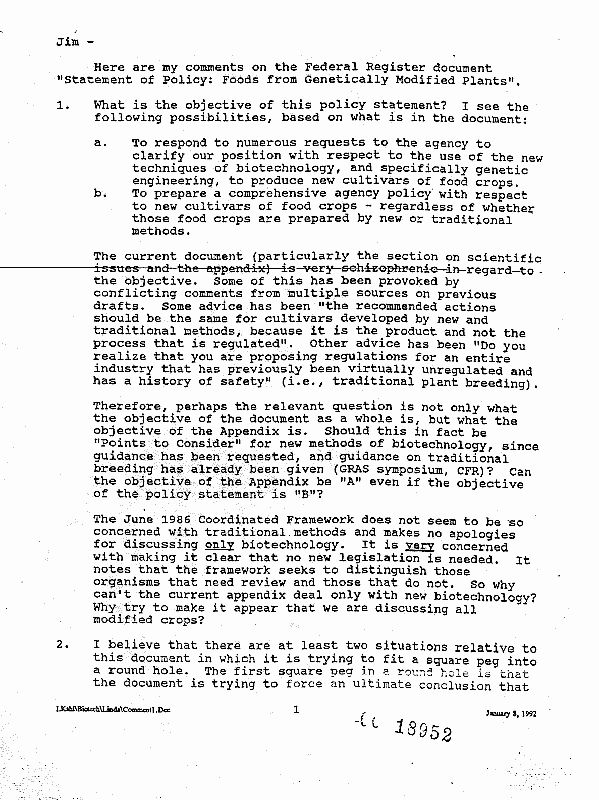
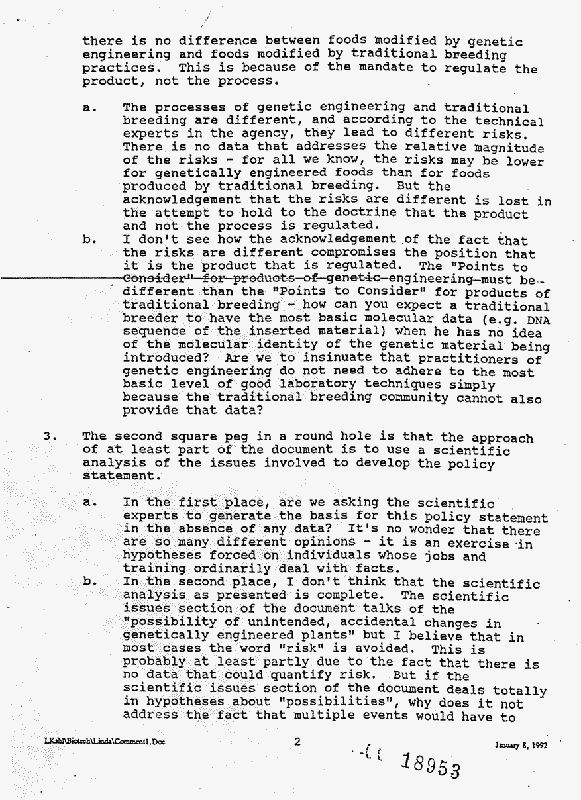










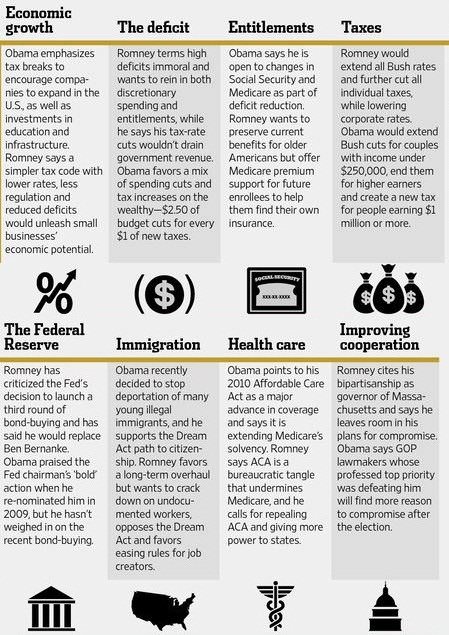


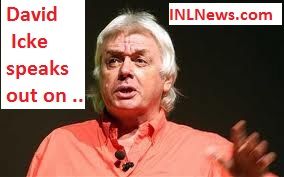




 Barack Obama with supporters and left...Mitt Romney right with a baby
Barack Obama with supporters and left...Mitt Romney right with a baby Ohio Election Rally 2012 USA presidential elections
Ohio Election Rally 2012 USA presidential elections




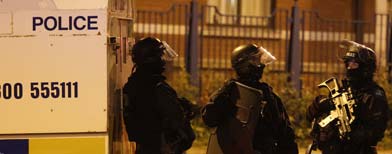












 United States
United States
